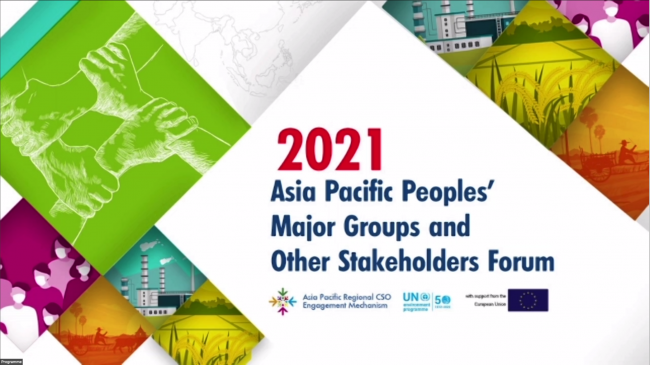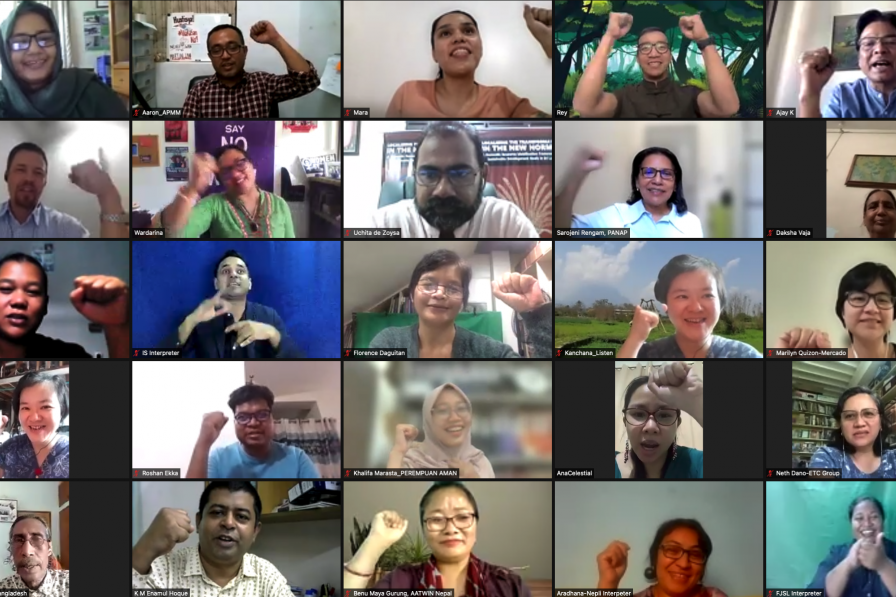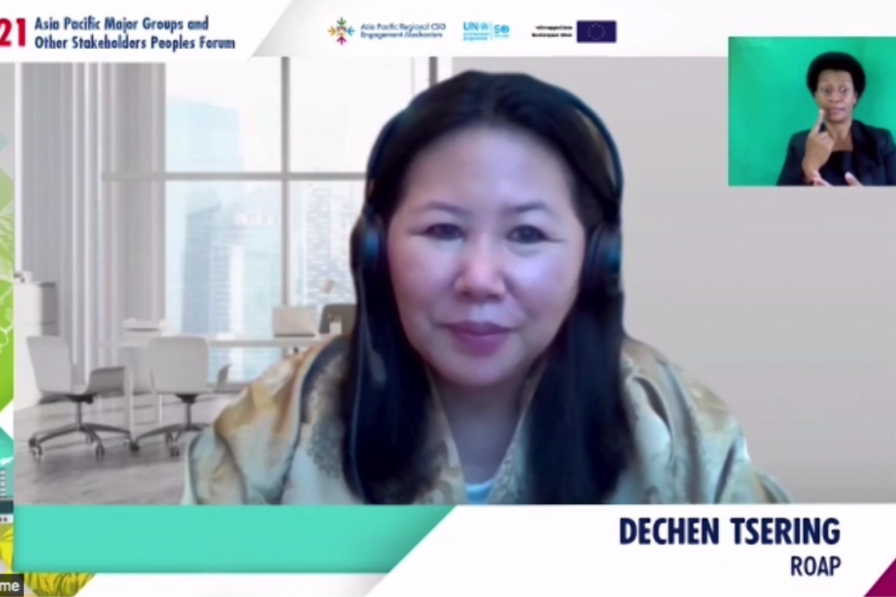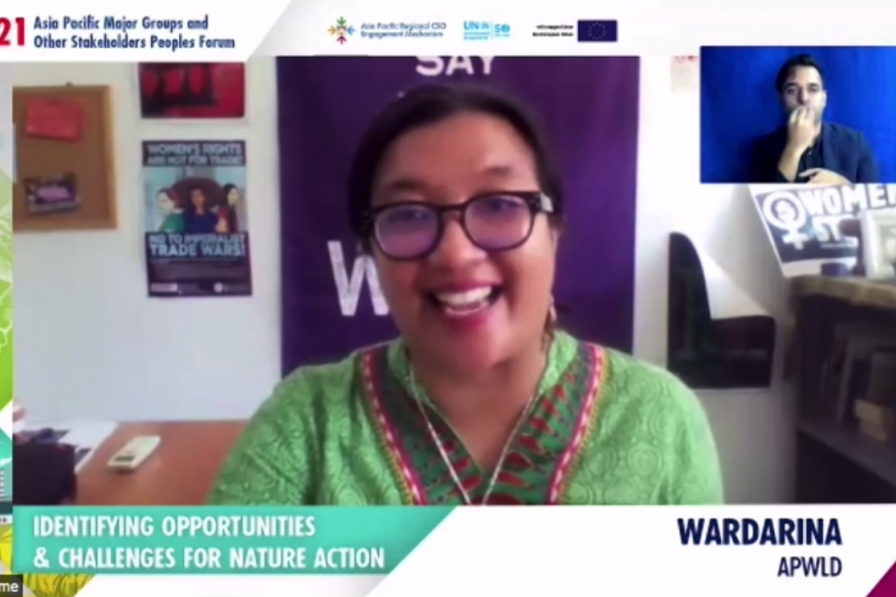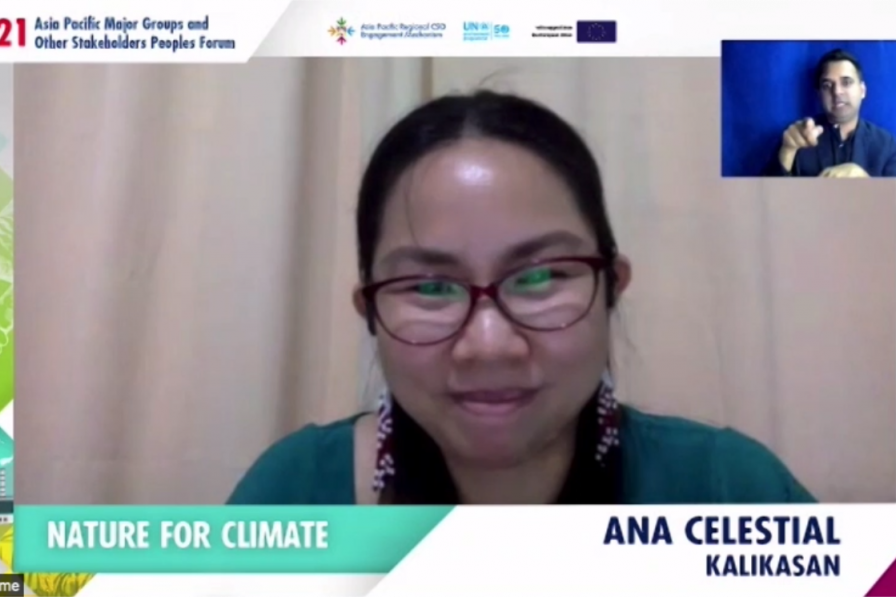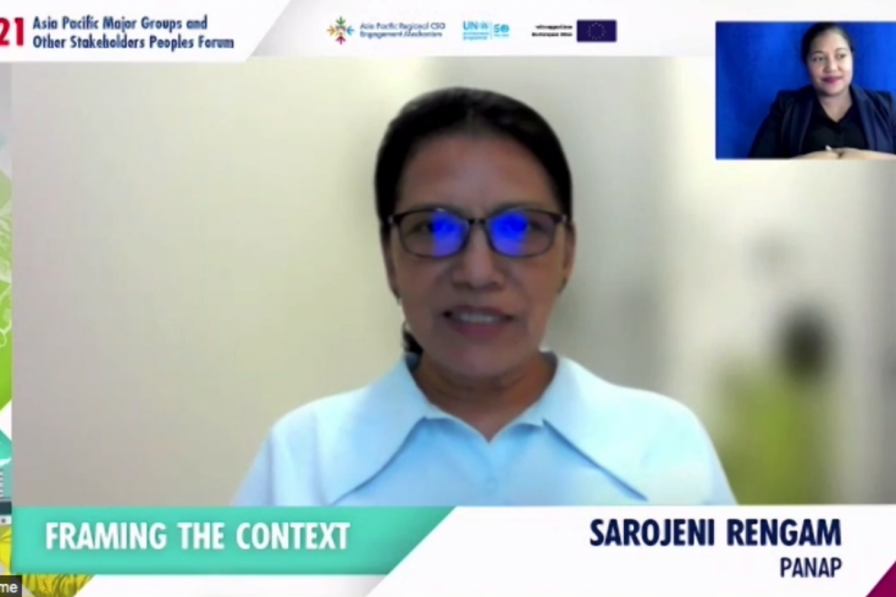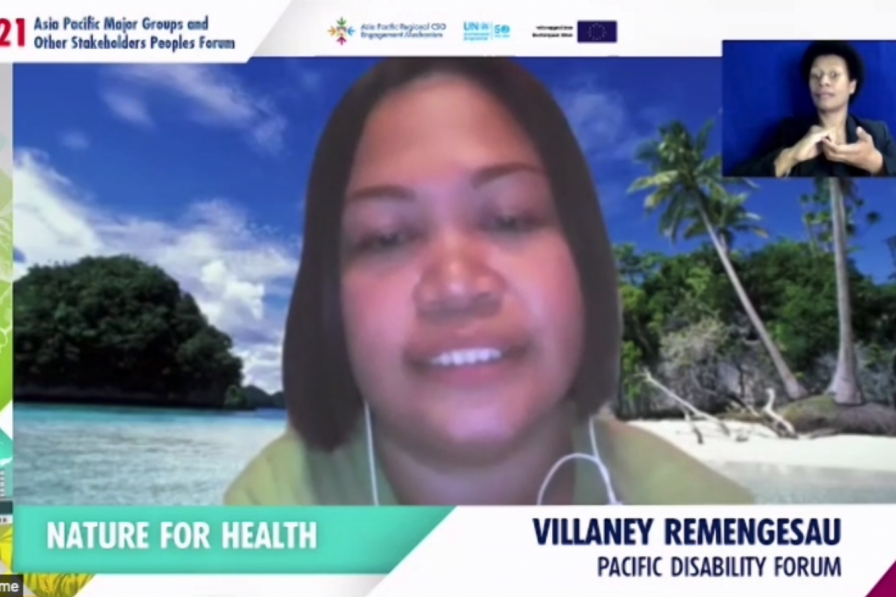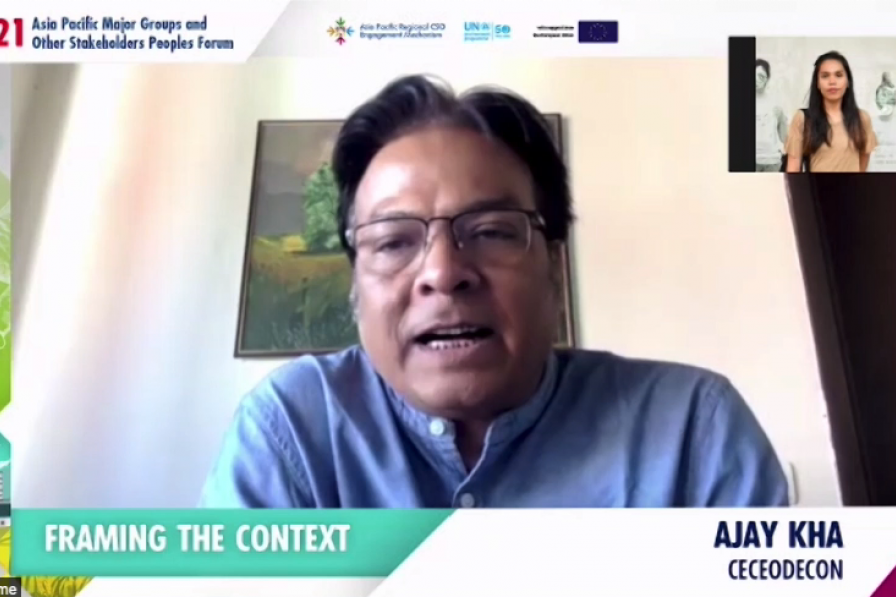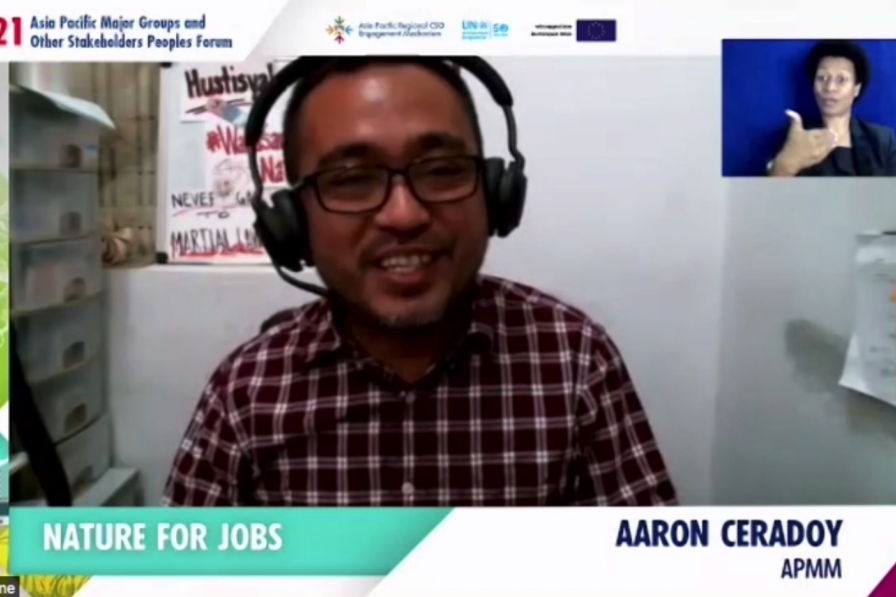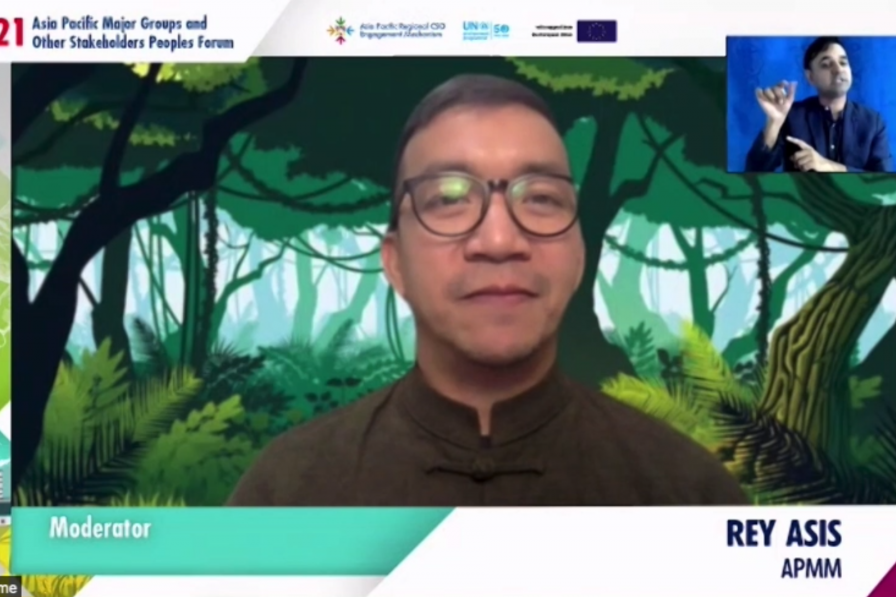Asia Pacific People's Forum
The Asia Pacific Peoples Forum, organized by Major Groups and Other Stakeholders, took place as a virtual event. More than 225 civil society organizations, including grassroots and community-based organizations, registered for the one-day talks.
In opening remarks, Wali Haider, Roots for Equity, noted that COVID-19 has hit the region hard and has transformed from a health crisis to a social and economic one. Haider and other speakers emphasized the need for ‘development justice’ that will reduce inequalities among people and countries, and address the structural issues that keep people vulnerable to poverty and exploitation. Many speakers highlighted the vulnerability of the region to climate impacts.
Jan Mohammad, Afghan National Education Coalition (ANEC), emphasized the need to promote engagement of women and youth, and to include women in climate action and decision-making processes. Emeline Siale, Pacific Islands Association of Non-Government Organisations (PIANGO), warned against corporate capture of oceans by deep sea mining for minerals, saying this should not be justified in terms of the net-zero transition.
Speakers also focused on the need to scale up the use of renewable energy, eliminate harmful pesticides, and support smallholder farming, among many other issues.
As hosts of the Ministerial Forum, high-level officials from the Republic of Korea’s Ministry of Environment welcomed participants and affirmed the role of civil society in upcoming events. Dechen Tsering, Director, UNEP Regional Office for Asia and the Pacific (UNEP ROAP), reported slow progress in implementation of the Sustainable Development Goals (SDGs) in the region, and welcomed civil society contributions to the resumed fifth session of the UN Environment Assembly (UNEA-5.2).
A panel on ‘Identifying Opportunities and Challenges for Nature Action’ called for prioritizing sustainable production systems that are based on agroecological models, ensuring equitable access to land, and transferring power, ownership, and decision making around production systems back to farmers, women and Indigenous Peoples. Aaron Ceradoy, Asia Pacific Mission for Migrants (APMM), said the impact of COVID-19 has resulted in massive job losses and reduction of wages and working hours, worsening job insecurity in the region, particularly for migrant workers. He urged prioritizing labor rights over profits.
Ranja Sengupta, Third World Network, called for restoring countries’ capacity to regulate in the public interest, warning that the investor-state dispute settlement (ISDS) mechanism in free trade agreements poses a threat to this. She called for establishing a UN tax commission and a multilateral tax convention to address tax abuse and illicit financial flows.
A second panel discussion on ‘UNEP of our vision’ drew attention to the need for political will if the UN body is to be effective. Simon Olsen, Institute for Global Environmental Strategies (IGES), noted that UNEP’s Medium-Term Strategy refers more to markets than governments or networks, and warned this is a risky approach to addressing global environmental challenges. He proposed promoting discussion of human rights to a healthy environment, and supporting UNEP’s work in strengthening national government agencies, as well as advocating to redefine human wellbeing to be less reliant on material consumption.
At the close of the day, participants reviewed the draft of a prepared statement from Major Groups and Other Stakeholders to the Ministerial Segment later in the week. The draft contains sections on nature for jobs, food, health, and climate. Sarojeni Rengam, Pesticide Action Network Asia Pacific (PANAP), announced that the draft will remain open until the following day for Forum participants to add their contributions.
The Forum adjourned at 3.10 pm Indian Standard Time (IST).
To receive free coverage of global environmental events delivered to your inbox, subscribe to the ENB Update newsletter.

